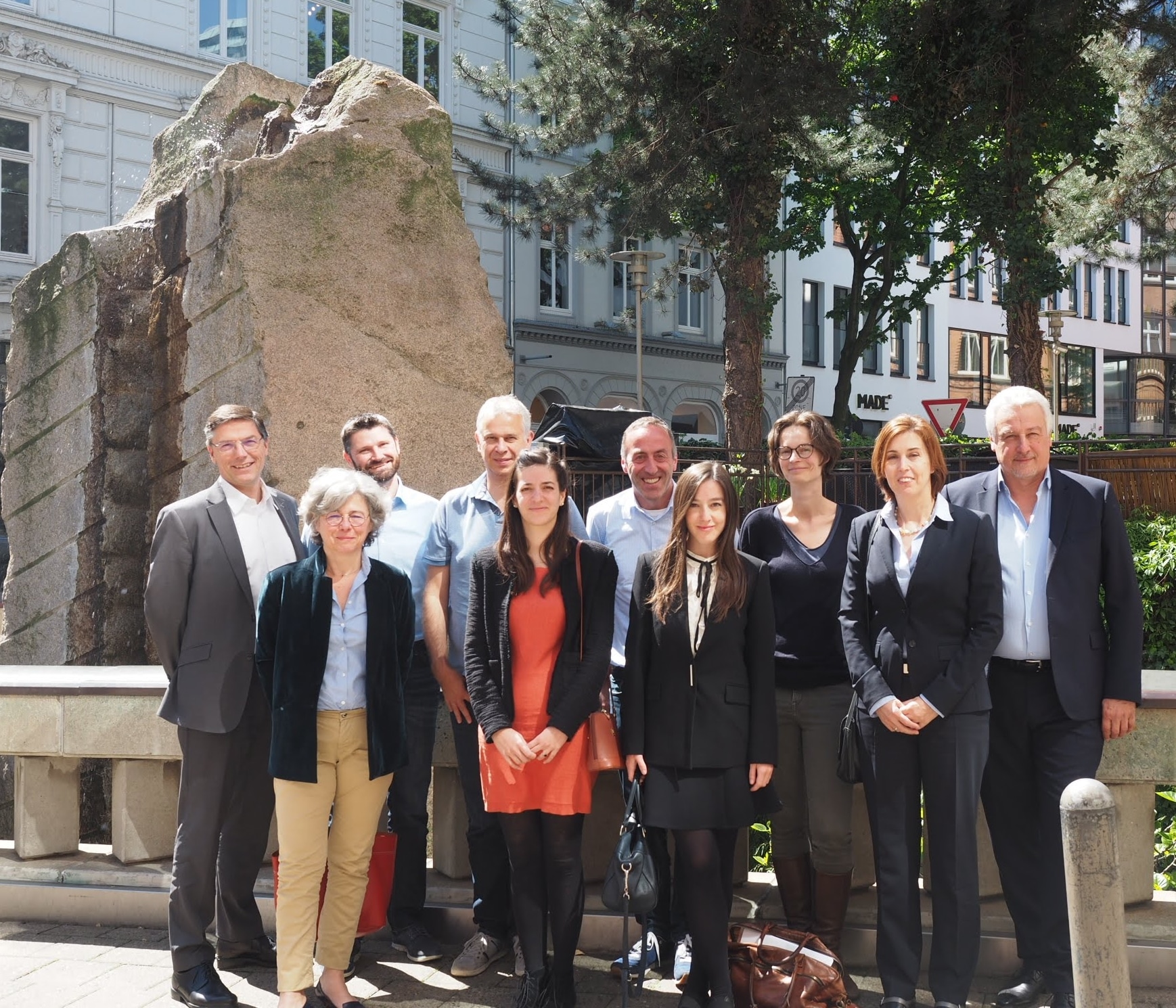CIOPORA’S take on Essentially Derived Varieties
In CIOPORA’s view, horticultural breeders, first and foremost, need effective protection of their Plant Breeders’ Rights (PBR). In respect of Essentially Derived Varieties (EDV) this means two things: the EDV concept per se is sufficiently broadly defined and that clear and unambiguous rules are provided for the establishment of dependency between an EDV and its Initial Variety. A narrow understanding of EDV, currently put forward in the UPOV Explanatory Notes on EDV (EXN EDV), may lead to gradual eradication of PBR. By providing a broader interpretation of the EDV concept the policy makers would ensure a fair and equitable treatment of breeders of the Initial Varieties on whose genotypes EDVs are solely or predominately based.
[tweetshareinline tweet=”A narrow understanding of Essentially Derived Varieties, may lead to gradual eradication of Plant Breeders’ Rights.” username=”EuropeanSeed”]
The issue becomes even more pressing with the rapid development of the New Breeding Techniques (NBT). Although the traditional breeding methods of crossing and selection still form a big bulk of the variety development in horticulture, many expect that NBT will soon penetrate the area delivering precise results at a reasonable cost and time investment. Mutants with improved traits produced by means of NBT may swiftly take over the market shares of their initial varieties, curtailing up to 20 years of breeding work by a single snap of genetic scissors.
Focusing on mutants that constitute the majority of EDVs in asexually reproduced horticultural crops, at CIOPORA we consider all distinct mutants to be EDVs per se because: (1) a mutant is not only predominantly but solely derived from its Initial Variety; (2) it is phenotypically distinct from its Initial Variety, and (3) except for the differences which result from the mutation it conforms to the Initial Variety. In our crops, it can be taken for granted that all phenotypic differences between a mutant and its mother variety result from the act of derivation. At the same time, a mutant will also retain several important characteristics of its mother variety – the very reason why a certain mother variety and not an older, free variety was chosen by the mutant developer.
CIOPORA’s approach to EDV is broader than the one currently suggested in the UPOV EXN on EDV. We believe that, if the CIOPORA approach is adopted by UPOV and eventually its members, it could contribute significantly to strengthening of the breeder’s right. We also believe that the same idea was behind the EDV concept introduction into the Act 1991 of UPOV. The EDV concept was introduced to strengthen the rights of breeders of Initial Varieties by creating a balance between biotechnology and traditional breeding and providing breeders of Initial Varieties with an additional source of remuneration. The aim was to establish a PBR-specific dependency between the Initial Variety and its EDV, so that the developer of the EDV required an authorization of the title holder of the Initial Variety for the EDV commercialization.
What are Essential Characteristics?
The notion of essential characteristics is ambiguous and does not contribute to more clarity on EDV. The European PVR Regulation 2100/94 does not use this notion but focusses on predominant derivation instead. CIOPORA supports this approach.
Additionally, the EXN on EDV wording provides that an EDV shall conform to its Initial Variety in the expression of the essential characteristics. Furthermore, it states that “…the differences which result from the act of derivations should be one or very few”. Such wording is too restrictive, as it reduces the possible scope of EDV to plagiaristic varieties only. In CIOPORA’s understanding, this has never been the aim of EDV concept as title holders are already protected from plagiarisms by the requirement of distinctness. Furthermore, such a narrow interpretation creates a high risk that varieties, although predominantly or even solely derived from one Initial Variety but not retaining all the essential characteristics thereof, will not be considered EDV. In CIOPORA’s opinion, the degree of the phenotypic similarity and the number of phenotypic differences should not be taken into consideration while determining whether a variety is an EDV or not. Instead, the EDV concept should help establish dependency for varieties that are phenotypically distinct and solely or predominantly derived from the IV.
Distinction Between More Important And Less Important Characteristics
In CIOPORA’s view, in respect of EDV, no distinction should be made between important and less important characteristics. However, a differentiation between important and unimportant characteristics should be made while evaluating distinctness of varieties.
[tweetshareinline tweet=”In plant breeders rights, for EDV, no distinction should be made between important and less important characteristics.” username=”EuropeanSeed”]
If an essential characteristic was changed due to an act of derivation, a variety can definitely still be an EDV. The main decisive factor is predominant derivation. The changes resulting from the act of derivation should not be taken into consideration, be it important or unimportant changes.
Mutant and GMOs
In our view, all mutants and GMO are EDVs as long as they are distinct from their Initial Varieties. They are solely or predominantly derived from the Initial Variety and retain the characteristics of the Initial Variety, except for those changes that result from the act of derivation.
Decisions on EDV
CIOPORA is of the opinion that the decision, whether a variety is an EDV is a matter for breeders and courts. The task of PBR Offices is to establish Distinctness of an EDV in the course of the variety examination process.
[tweetshareinline tweet=”Whether a plant variety is an EDV, is a matter for breeders and courts.” username=”EuropeanSeed”]
Revision of the current UPOV Explanatory Note on EDV
CIOPORA is of the opinion that the EXN on EDV should be revised.
- It suggests a very limited scope of the EDV concept, to the disadvantage of the (traditional) breeders of Initial Varieties;
- It is at least open for a very narrow interpretation and does not provide clear guidance, which triggers disputes with unpredictable outcome;
- It deprives breeders of the decision on EDVs.
Revision of the EDV provisions in the UPOV Convention?
The UPOV 1991 Act is almost 30 years old and during this period of time huge changes have occurred, in breeding as well as in production and trade in plants and plant material. Is the 1991 Act still up to date? It seems to be difficult to find consensus on the question whether the UPOV 1991 Act should be revised. In any case, the text of the EDV provision in the 1991 Act would give good reason to consider, at least a partial, revision.
Editor’s Note: Dr Edgar Krieger is Secretary General of CIOPORA, the International Association of Breeders of Asexually Reproduced Horticultural Varieties.












